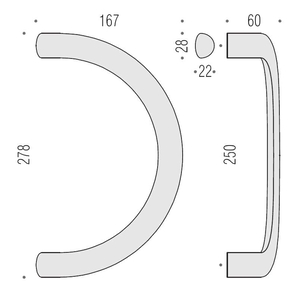A handle for major-mode generic functions.
handle provides generic functions that specialize on major modes and
intended purpose instead of arguments. Similar functionality is needed
across programming languages such as:
- evaluating expressions
- starting repls
- finding documentation
- going to definition
- formatting code
- compiling code
- listing errors
But this functionality is performed by different callables across
major modes and often by multiple callables in the same one. handle
groups them together so that they can be bound to a single global
kbd, selected based on major mode, and run in sequence until one
succeeds.
handle generates handle-* functions based on (user-specified)
handle-keywords that can then be bound to a single global kbd
and used in any major mode.
So by running this:
(handle '(python-mode inferior-python-mode)
:repls #'run-python
:formatters #'lsp-format-buffer
:docs '(lsp-describe-thing-at-point
python-help-for-region-or-symbol
python-eldoc-for-region-or-symbol
python-shell-print-region-or-symbol))And then calling handle-docs in python mode, handle will run each
of the functions specified under :docs in order untill one
succeeds. If a function errors out (or returns nil, see
handle-nice-functions) it will calmly proceed to the next one. The
same function will behave differently in other modes.
handle is also aware of the Emacs mode hierarchy. If it cannot
handle the task you gave it in a specific mode, it will attempt to do
so with the instructions you gave for the parent mode. This also means
that you can set default/global handlers by targeting modes like
prog-mode and text-mode.
This package is designed to be as unopinionated as possible. I
strongly recommend setting your own handle-keywords before loading
the package. The appropriate handle-* functions will then be
generated, and the handle function itself will be able to interpret
all of them.
